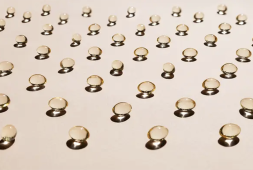
A groundbreaking study conducted this week suggests that patients diagnosed with thyroid cancer could potentially avoid surgery through a minimally invasive procedure.
This procedure, utilizing microwave ablation, offers a promising alternative to traditional surgery, sparing patients from the physical and emotional tolls of undergoing an operation.
Researchers at China-Japan Friendship Hospital in Beijing spearheaded the development of this innovative approach, marking the first multi-center analysis of patients undergoing microwave ablation compared to those opting for surgery to treat their multi-focal papillary thyroid cancer (PTC).
Thyroid surgery, while effective in removing cancerous tissue, can significantly impact a patient’s quality of life due to factors such as scarring, lifelong hormone replacement therapy, and potential complications, including permanent hoarseness.
Director of interventional medicine, Dr. Ming-An Yu, said, “These findings challenge traditional treatment paradigms and open new avenues for less invasive management strategies.”
In contrast, microwave ablation, a minimally invasive procedure, utilizes heat from microwave energy to target and destroy cancer cells. This technique has the advantage of rarely producing serious side effects, offering patients a less invasive and potentially more favorable treatment option.
The study, published in the journal Radiology, analyzed data from 775 patients with Stage 1 PTC who underwent either microwave ablation or surgery at ten different centers between 2015 and December 2021.
These patients, comprising 229 in the microwave ablation group and 453 in the surgical resection group, all presented with two or more nodules in the thyroid gland and were followed up for one to four years.
The findings revealed that microwave ablation was associated with similar progression-free survival rates as surgery, but with fewer complications and a greater potential for preserving thyroid function. Specifically, patients who underwent microwave ablation experienced less blood loss, shorter incision lengths, and shorter procedure and hospitalization durations compared to those who underwent surgical resection.
Notably, permanent hoarseness and hypoparathyroidism, potential complications of thyroid surgery, were encountered only in the surgical resection group.
Dr. Yu said, “This preliminary investigation represents a significant advancement in the field of interventional thyroid cancer treatment.”
“Microwave ablation offers a promising treatment option (and) can preserve thyroid function, thereby enhancing patients’ quality of life.”
These results highlight the potential microwave ablation as an effective and less invasive alternative to surgery for the treatment of multi-focal papillary thyroid cancer. By sparing patients from the physical and psychological burdens associated with surgery, microwave ablation offers new hope for individuals diagnosed with this disease.



